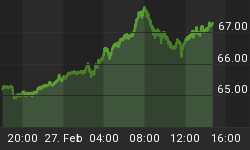Last year, massive cracks emerged in Jack Ma’s sprawling internet and mobile empire after Chinese authorities scuttled the much-anticipated $37 billion Ant Group listing. Jack Ma is the founder and former-CEO of Alibaba Group Holding Ltd (NYSE: BABA), which used to own Ant Group, back when it was known as Ant Financial and Alipay. Investors fully expected Alibaba to pay a heavy price, especially after Ma’s outburst criticizing the way China’s state-owned banks operate.
Turns out they were right on the money: Chinese regulators went on to fine Alibaba a staggering $2.75 billion for antitrust violations, a record for a Chinese company.
Beijing charged Alibaba for anti-monopoly violations for abusing its dominant market position, with the State Administration for Market Regulation (SAMR) determining that Alibaba has been abusing its market dominance since 2015 by forbidding its merchants from using other online e-commerce platforms.
But observers who believed the authorities had been fully pacified clearly underestimated the government’s wrath: Beijing is now promoting a digital currency clearly meant to undercut the dominance of Alipay and WeChat, the country’s leading digital payment platforms.
"People will realise that digital yuan payment is so convenient that I don't have to rely on Alipay or WeChat Pay anymore," a bank official involved in the rollout of e-CNY has told Reuters under condition of anonymity.
Alipay and WeChat Pay control a combined 94% of China's online payment market.
Digital yuan
No less than six big state banks have been quietly promoting the digital yuan or e-CNY, a state-sponsored digital currency primarily focused on domestic use meant to replace coins and cash in circulation. Apparently, the People’s Bank of China (PBOC) has been working on e-CNY since 2014.
The PBOC has been carrying out a number of trials on digital yuan across major cities in China though a national rollout is yet to happen. The pilot projects are being conducted in the form of lotteries whereby the PBOC is handing out "red envelopes"of free digital cash or discounts to online shoppers ahead of a May 5 shopping festival. Interestingly, digital wallets can be bundled with a dozen popular apps including JD.com, Meituan, Didi and Bilibili, but conspicuously can not be linked to Alipay or WeChat. In other words, none of the participating banks can transfer digital yuan between their digital wallets and Alipay or WeChat.
Beijing does not like the fact that WeChat Pay and Alipay happen to own an ocean of data, which probably makes sense considering that Big data is wealth, and whoever owns data thrives.
Antitrust practices
China's development of a sovereign digital currency is way ahead of similar initiatives in other major economies and is part of President Xi’s crackdown on antitrust practices in China’s business world.
Over the past decade, Ant Group has evolved into a one-stop shop for everything from online payments and financial investment to offering loans and numerous other financial services, amassing over 700 million monthly users to become the world’s most powerful fintech. Jack Ma created Alipay, a subsidiary of Ant Financial, in 2004 to give Chinese customers who lacked credit and debit cards an easy way to shop in the vast online marketplace. The platform has grown from strength to strength and now boasts 1.3B users.
Ant Financial’s dual listing in the Hong Kong and Shanghai stock exchanges was expected to raise at least $35 billion.
As Alipay grew, Jack Ma discovered that banks were not doing nearly enough to support small businesses and began advancing them with small loans. In 2010, Alipay was carved out of Alibaba after the authorities said the platform would need a new license to operate.
By 2013, Alipay was holding customer funds worth billions of dollars in escrow. It was around that time that the company came up with the idea of investing idle customer funds in money-market funds to earn an income. The money market fund, known as Yu'e Bao for "leftover treasure”, allows customers to invest as little as 0.01 yuan ($0.0015). The fund pays interest rates several points higher than what banks pay on short-term deposits, something it’s able to do because its status allows it to invest in riskier products than what banks are allowed to tap.
A boom in asset-backed securities issued by micro-lenders that package consumer loans into securities has been fueling the company’s growth.
China’s banks, including the country’s largest, have not been happy with the turn of events, and have complained that Ant has been siphoning away their deposits, forcing them to pay higher interest rates to attract deposits and even leading to the closure of branches and ATMs.
One state-owned TV channel famously described Ant’s massive money market fund as a “vampire sucking blood from banks”.
Beijing grew wary, and has been looking for ways to put the clamps on Ant.
Two years ago, China’s central bank scuttled Ant’s year-long efforts to build a national credit-scoring system by barring banks and institutions making loans from using it, though it did develop a private system. Unlike the U.S., China lacks a national credit scoring system.
Chinese regulators have instructed Ant Group to apply as a financial holding company, which would make it subject to central bank oversight. Ant will also have to remedy what regulators have deemed unfair competition in its payments business and improve its corporate governance.
Ant Group and Alibaba will not be the last online payment platforms to face Beijing’s wrath on grounds of antitrust violations.
Meituan (OTCPK:MPNGF) ADRs have been selling off after China's antitrust regulator started a probe into alleged antitrust violations in response to complaints filed against the food delivery company.
Nomura analysts expect that Meituan will likely be convicted and be forced to pay a CNY4.6B ($706M) fine.
By Michael Kern for Safehaven.com
















